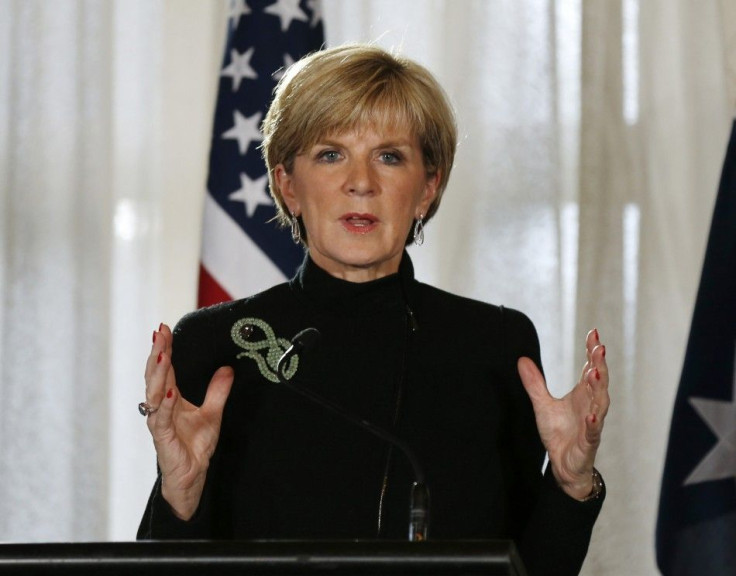Australia To Sign Spying Code Of Conduct With Indonesia

Australia is all set to sign a spying code of conduct with Indonesia that is expected to restore the damaged relation between the two countries.
According to reports, the document is going to be a straight-forward one consisting of a single page. It will apparently be called a "joint understanding of a code of conduct."
Indonesian Foreign Minister Marty Natalegawa will sign the clause along with his Australian counterpart, Julie Bishop, in Bali on Thursday, Aug 28.
The code of conduct will make sure that the involving countries do not harm each other by using their intelligence. The diplomatic relation between Australia and Indonesia went sour in November 2013 when it was revealed that Australian intelligence had eavesdropped Indonesian President Susilo Bambang Yudhoyono's phone calls in 2009.
Bishop dodged the question if the code of conduct would restrict spying between Indonesia and Australia. "This specifically says that Australia and Indonesia will not use our resources, including our intelligence resources, to harm each other's interests," Bishop said. "In fact, it enhances the opportunities for cooperation between our intelligence agencies and anticipates a greater level of engagement between Australian intelligence agencies and Indonesian intelligence agencies."
The reconciliation between Australia and the Asian country is expected to help the cause of international cooperation on fighting potential terror threats Down Under. According to the Australian government, the spy clause will be able to counter a "disturbingly large" number of Aussie militants who are reportedly returning home from the Middle-East. According to Bishop, Australia is the largest source for the Islamic State to recruit foreign fighters.
Yudhoyono was the one who demanded such a code of conduct to be signed between the countries after the spying scandal in 2013. Otherwise, the Indonesian president refused to cooperate with Australia regarding security, human-trafficking and military efforts. U.S. whistleblower exposed in February 2014 that Australia had spied on Jakarta during its trade dispute with the United States. Australian Prime Minister Tony Abbott also cancelled a meeting with Yudhoyono at the last moment in May.
Australia signed a deal with the U.S. government that will enable the countries to share immigration and visa information to ensure a stricter border control.
Contact the writer: s.mukhopadhyay@ibtimes.com.au





















